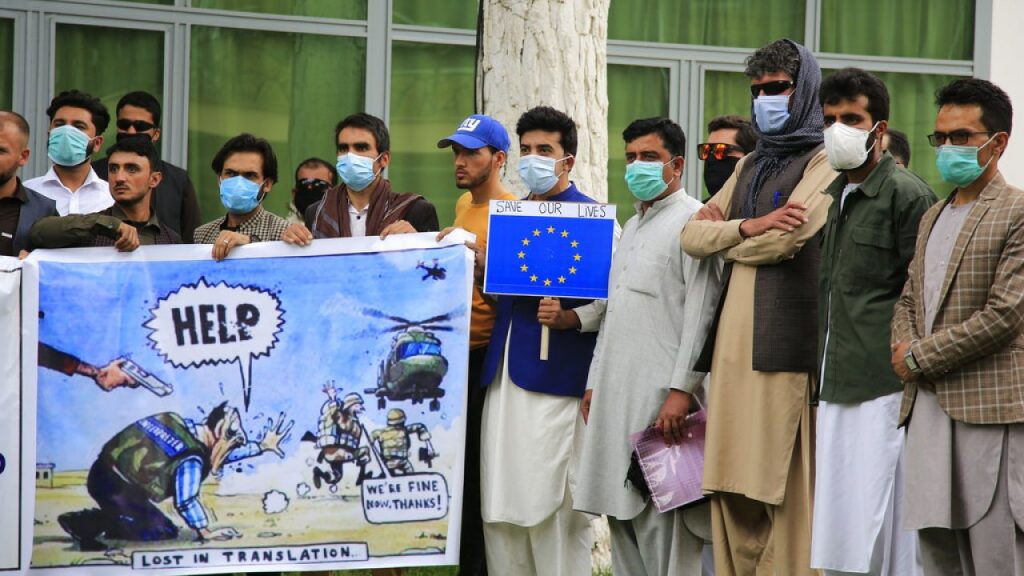
In April, Former Afghan interpreters hold placards during a protest against the U.S. government and NATO in Kabul, Afghanistan. (AP Photo/Mariam Zuhaib)
The Biden administration on Wednesday announced plans to evacuate Afghanistan citizens who assisted US troops in fighting the Taliban. The the mission named ‘Operation Allies Refuge’ unveiled by the White House on Thursday will begin in the last week of July. Flights out of the war-torn country will begin at the end of July ahead of the final withdrawal of US troops by August 31 said Ambassador Ross Wilson, the US Chargé d’Affaires in Kabul.
Wilson said “the United States is launching Operation Allies Refuge to support relocation flights for interested and eligible Afghan nationals and their families who have supported the United States and our partners in Afghanistan.” He further informed that “flights out of Afghanistan for [special immigrant visa] applicants who are already in the pipeline will begin in the last week of July.”
President Joe Biden, who has authorized the flights, has said: “Those who helped us are not going to be left behind.” The plan to relocate Afghans who helped the US had been in the works for weeks.
In Washington, White House Press Secretary Jen Psaki told reporters on Thursday that the “immediate focus” of the US is on relocation of “eligible Afghan nationals and their families who have supported the United States and our partners Afghanistan”.
There are about 20,000 interpreters, clerks, drivers and others with their family members who are in process of applying for visas to enter the US under a special programme for Afghans, Psaki said. The US Congress is preparing legislation to expedite those visas and support the emergency relocation plan.
Psaki said “a large portion of that group” would be “relocated directly to a military base in the United States” where they would receive “medical checkups”, housing and assistance. Others “who have not yet completed their background checks” would first be flown either to US military bases overseas or to third countries “where they will be safely housed until their visa processing is complete”, Psaki said.
Fears of a Taliban takeover in Kabul have risen as the terrorist group made fresh gains against Afghan government forces and police in provinces north of the capital. Taliban has also reportedly seized border crossings with neighbouring Iran, Pakistan and Turkmenistan.
US military officials have said the after the troop pullout, only about 650 will remain to protect the embassy and Kabul airport. The US has handed over control of Bagram airbase to the Afghan military, and the US commander since 2018, General Austin ‘Scott’ Miller, has been recalled to Washington.
President Biden has defended the US troop pullout while saying that many Afghan assistants won’t be able to immediately enter the US and will have to remain in third countries temporarily pending vetting.
Former President George W. Bush, who directed the 2001 invasion of Afghanistan after the 9/11 attacks, this week made a rare public comment arguing against the withdrawal, claiming it would set back human rights in the country, including for women and girls.
